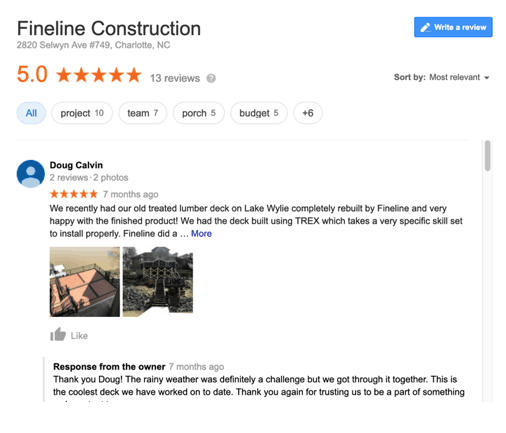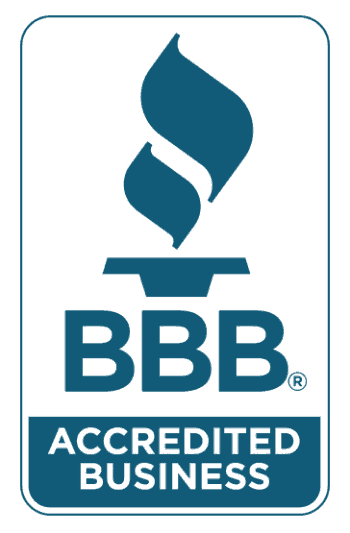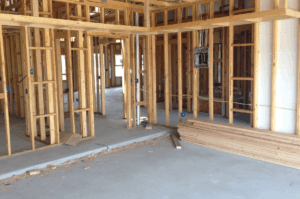A home addition or renovation is a big expense. Between the cost and the fact that you’re making serious changes to your main living space, you’re taking a big risk. That risk could result in a stressful catastrophe, or pay off in the home of your dreams. Which way it goes depends primarily on what contractor you choose.
For those in the Charlotte, NC area, your search for a contractor will turn up a lot of options. Six simple steps will help you weed out contractors you’re better off without and focus in on those known to be reliable.
1. Make sure the contractor has the proper licensing.
Your friend knows a guy he swears is good and won’t charge much. It’s tempting, we get it. But with all the risks already associated with a big home improvement project, going with anyone that’s not a licensed contractor vastly increases the chances that you’ll end up with a mess on your hands.
A licensed contractor has proven their skill and knowledge to an unbiased third-party organization (The North Carolina Licensing Board)—you don’t just have to trust their word that they have the know-how and experience to manage your project. And while a handyman can be really good at building things, that’s different than having the holistic knowledge of how to manage a large project and provide a realistic estimate.
Hiring a licensed contractor makes it less likely you’ll have problems, but if you do, it also means you have recourse. If your contractor fails to do the job well, you may be able to get some of your money back from the board’s Homeowners Recovery Fund, which reduces your overall risk.

2. Look at their reviews.
A license tells you a contractor’s running a legitimate business. Reviews from past clients tell you how they’ve performed on actual projects they’ve completed. Check sources like Houzz, Google, and Angie’s List to see what people who have actually hired them have to say about their experience with them.
 Reviews will often provide specific information about the kind of project they worked on, and specific things the client liked or didn’t like about working with the contractor. They give you a snapshot of a contractor’s reputation with people like you.
Reviews will often provide specific information about the kind of project they worked on, and specific things the client liked or didn’t like about working with the contractor. They give you a snapshot of a contractor’s reputation with people like you.
3. Check their Better Business Bureau (BBB) listing.
 Home improvement scams are unfortunately common. All of the steps on this list can help you avoid the kind of contractors prone to using sleazy tactics to overcharge homeowners. But one of the best ways to weed out scammers outright is by checking the BBB directory of businesses.
Home improvement scams are unfortunately common. All of the steps on this list can help you avoid the kind of contractors prone to using sleazy tactics to overcharge homeowners. But one of the best ways to weed out scammers outright is by checking the BBB directory of businesses.
A company’s BBB listing will show you a number of important pieces of information:
- How long they’ve been in business—for a company to be successful for years, they must have earned a solid reputation and happy customers.
- Their BBB rating – this is based on any customer reviews they’ve received through the site, what complaints have been lodged against them, and how they responded.
- Customer complaints – if past customers have lodged complaints against the business, you can see how many and, in many cases, can read the details of the complaints.
A good BBB rating isn’t the promise of a great contractor, but it’s a good sign. A bad rating or lots of complaints is an early warning to run.
4. Review their construction portfolio.
 Any contractor with experience will have a collection of photos that demonstrate the type and quality of work they’ve performed. Usually you’ll be able to find this on their website. If not, ask them directly where you can find their portfolio. Ask them to show you examples of the specific type of project you have in mind so you can gauge their level of experience with the kind of work you want and see what past examples look like.
Any contractor with experience will have a collection of photos that demonstrate the type and quality of work they’ve performed. Usually you’ll be able to find this on their website. If not, ask them directly where you can find their portfolio. Ask them to show you examples of the specific type of project you have in mind so you can gauge their level of experience with the kind of work you want and see what past examples look like.
5. Ask for references.
Photos can tell you part of the story of past projects, but they won’t tell you about the days and details it took to get to that point. For that, your best source is talking to the past clients of a contractor directly. Ask any contractor you consider working with for references.
If they have a lot of happy customers, they shouldn’t have much trouble providing you with one or two who are willing to tell you a little about their experience and answer any specific questions you have. If you know for a fact that a past homeowner had a good experience because you were able to talk to them directly about it, you can trust you won’t have much to worry about with your project.
6. Talk to them to gauge their knowledge and professionalism.
All of these can help you determine that a business is legitimate and known for doing good work. But there’s still nothing quite like talking to a contractor directly.
Most contractors will offer a free consultation. Take advantage of that to see for yourself if the contractor sounds knowledgeable, honest, and friendly. Do they answer your questions directly? Are they willing to bring up hard truths about costs or common issues that come up? Can they speak to the specifics of what completing a project like yours looks like?
If they check all the other boxes on this list, this last step should give you the final bit of knowledge you need to make an informed decision.


